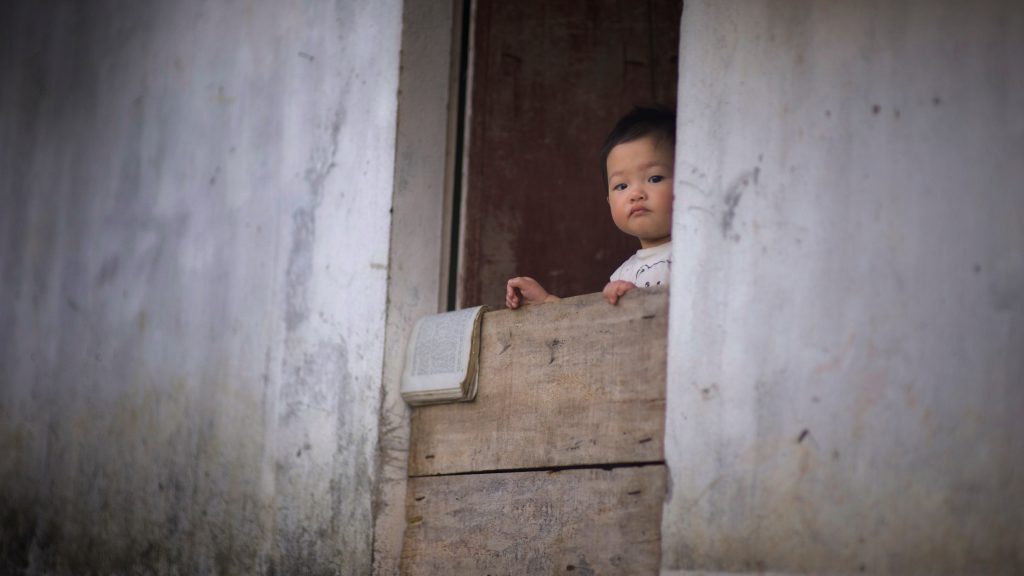By Dr. Kristin Mauldin, Ph.D.
In my last blog, I talked about empathy. I spoke about taking the courageous step to show vulnerability in order to connect with others. But what about when we don’t really relate? In day to day life, such as sitting next to a peer in class, you may be quite different from that person, but it probably is a short distance from your experiences to theirs. For example, you may be quite comfortable in small crowds but can understand your shy peer’s nervousness in a new class since you get nervous in large crowds. Or perhaps your longest relationship was only 3 months and that break up hurt, so you can wrap your head around a 2-year long relationship break up hurting a lot. But what about connecting and empathizing with others whose experience is very different from your own?
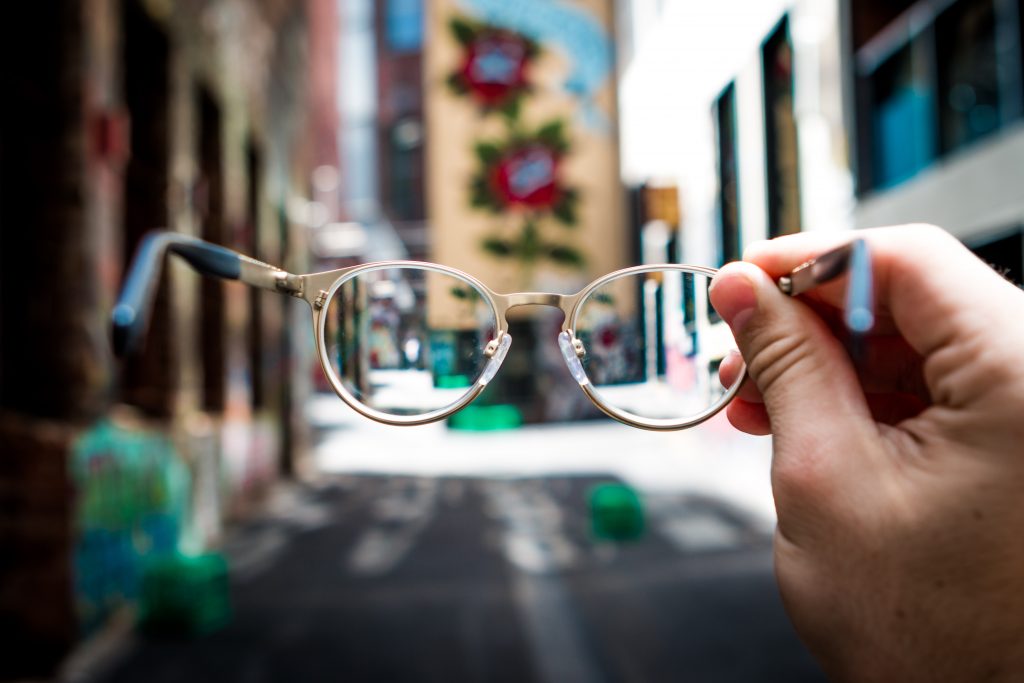
This is a big issue with people who have chronic and long-term physical disabilities. Able-bodied individuals can have a really difficult time understanding those with physical disabilities and, due to fear of offending them, may even avoid interacting with them. Back when I was in graduate school at Miami University, I TA’d a Social Psychology course for Dr. Tim Dowd. Dr. Dowd taught about the responsibility of the person with the physical disability to advocate for themselves and teach others how to interact with them. He discussed how it was not realistic, or fair, to expect the general public to understand how to interact with them, especially given how varying disabilities can be. Not all professors could, perhaps, get away with delivering this message, but Dr. Dowd could. Dr. Dowd had full-blown AIDs and was already in its rather advanced stages when I met him. He passed away just 5 years later from complications of his disease.
Though the person with the physical disability needs to advocate for and communicate their needs, there is still some responsibility on the side of the able-bodied individual. For example, if you have a friend or a classmate with a limitation, you can ask them about it, and even do your own research on their condition. An honest question such as, ‘Do you mind if I ask you about your condition? I don’t want to offend you, I just want to understand, but I can understand if you don’t want to talk to me about it.’ is usually appreciated. Another common misconception is that a person with a physical disability wants sympathy. This is usually the LAST thing that person wants, but I can understand why the able-bodied individual might think that.
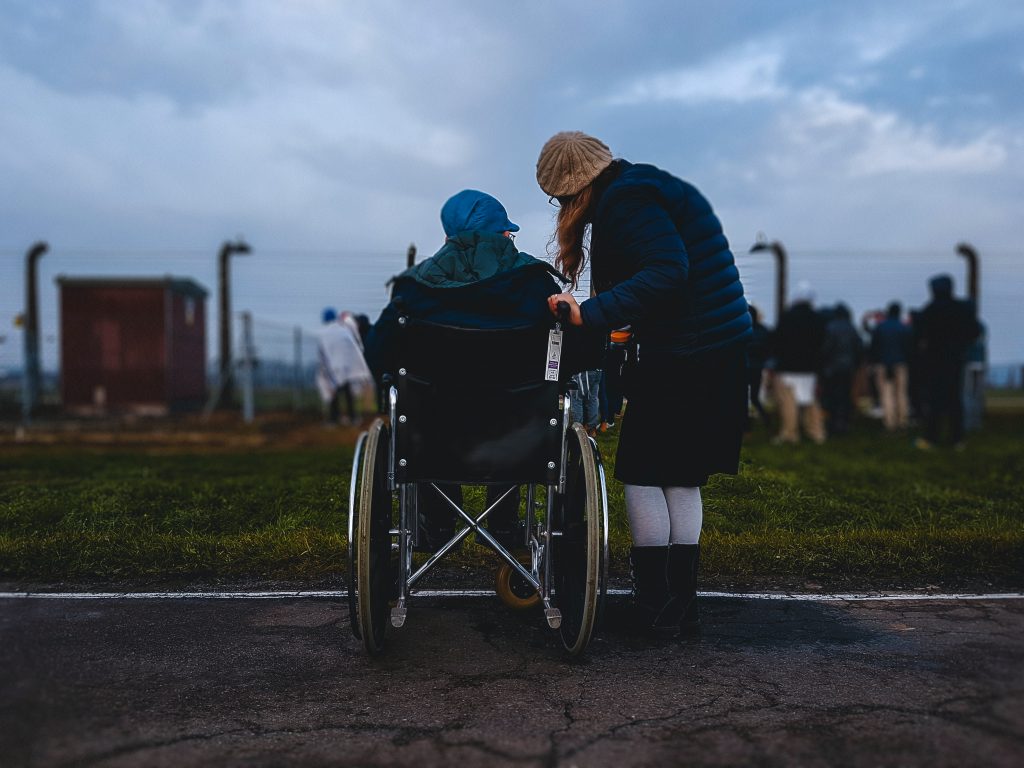
A person who is able-bodied may look at a person with a chronic condition/long term limitation and think, ‘Oh, that is similar to when I broke my ankle. That was so hard.’ And it is likely that, during that time, the person appreciated sympathy. With a short term condition, sympathy is usually welcome, but with a long term condition, it can just be insulting and, at times, infuriating.
Let me try to explain. When a condition is long term and/or permanent, it becomes a part of that person. It does not define who they are, but it is a part of them. It is not something they are suffering temporarily that will go away. So when you feel sorry for them, it is like you are telling them that you are sorry they are who they are. Much like if I told you, ‘Oh, I am so sorry you are short.’ or ‘It must be tough to be blonde.’, ‘Well, that must be a lot tougher for a female.’, or ‘It must be difficult being of ___ race.’ Condescending and insulting, right?
The other thing that it does is it blocks out their accomplishments. Making these types of statements highlights what you (clearly) perceive as their weaknesses, instead of highlighting, or even recognizing, their strengths. If there was a word for the opposite of empathy, this might be it. So, let’s stop for a moment and consider the strengths I am talking about. Fall semester of 2019 I had a student with a chronic physical condition that left her exhausted and in pain most days. When she was able to make it to class, I knew it was a big accomplishment. Now, she could have excused herself from every class and had a legit medical excuse to do so, but, she didn’t. I have been teaching for a long time and have heard many lesser excuses for missing class, the most recent being that the student didn’t feel up to leaving their house because it was raining. When I saw my student coming in to class looking exhausted and miserable, I saw her as a tough, resilient student who was pushing through to get her education despite what her disease was putting her through.
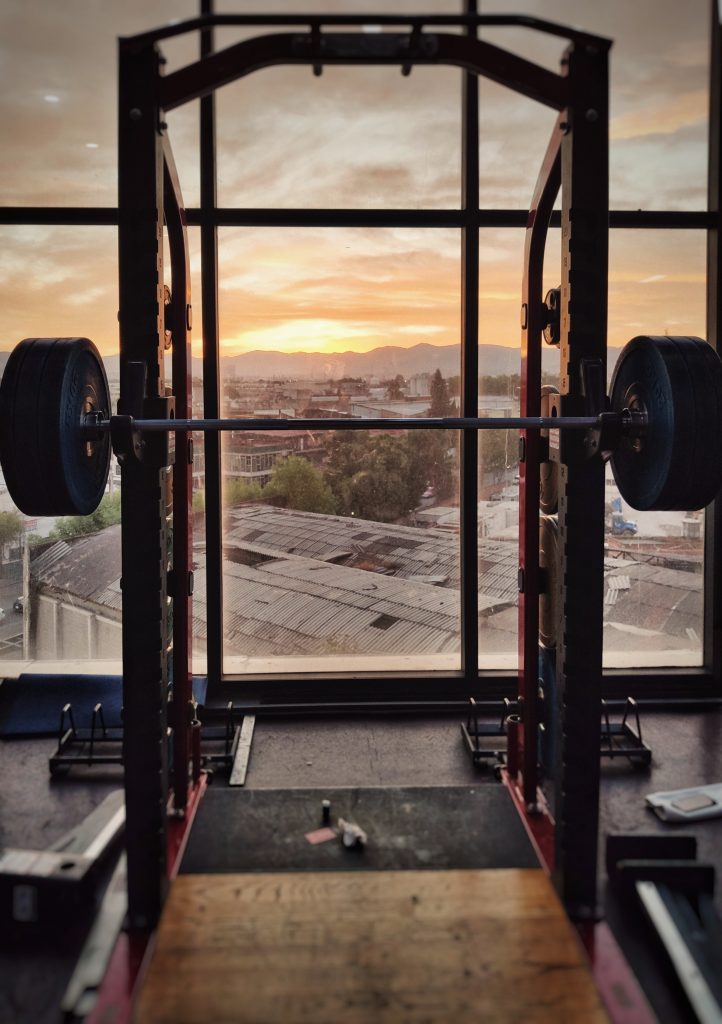
This issue is very relevant in athletics. Dr. Jessica Stapleton, professor of psychology at University of North Florida and Sport Psychology consultant for USA Para-PowerLifting, was very concerned that the Para-Power Lifters would not accept her since she is able-bodied. Thankfully, her knowledge and understanding of these athletes was clear and they were happy to have her. She is a prime example of someone who ‘gets’ that culture. She talks about how tough and gritty they are, and how she respects them as athletes (personal correspondence). She lights up when talking about wheelchair rugby players as well. And who wouldn’t? Those athletes are about as tough as they come (don’t believe me? Check out some of the YouTube videos of their games!). Paralympic sprinter Aimee Mullins set a record when sprinting on prosthetic legs and has since then talked about how her disability has likely led to her strength, confidence, and success. In fact, in her TED talk, she questions whether she would choose to get rid of her disability if given the choice (https://www.ted.com/talks/aimee_mullins_changing_my_legs_and_my_mindset).
The Paralympic Games originated in 1960 with 400 athletes representing 23 countries (International Paralympic Committee, 2014), yet there was difficulty getting the public to buy in. Yet why? While it is impressive watching an athlete in peak shape perform feats of athleticism that outreach those of so many others, why wouldn’t performing similar feats but with severe physical challenges,draw similar support? There is a focus on the limitation here, rather than recognition for the grit, tenacity, and sheer hard work it must take for these athletes to perform such achievements.
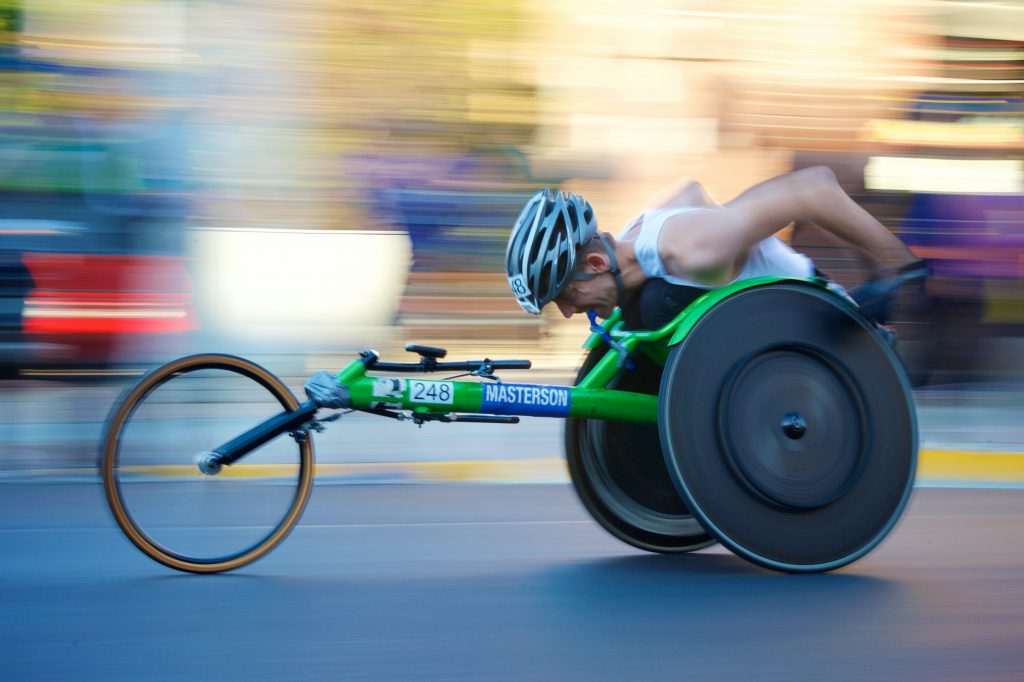
Athletes with physical disabilities face several challenges in addition to their own physical limitations. Some additional barriers are the cost of specialized equipment, obtaining transportation to practice, and finding suitable facilities/trainers (McLoughlin, Weisman Fecske, Castaneda, Gwin & Graber, 2017). There is a severe paucity in coaches trained to work with these athletes, and of those over 90% are men, making it even tougher for female athletes with disabilities (Alexander, Bloom, & Taylor, 2020). Even just finding people to work with and associate with that understand their condition and goals can be very difficult. For example, one athlete was instructed by his coach to join the Special Olympics training team despite the fact that he had a physical disability, not a mental disability trainer (McLoughlin, Weisman Fecske, Castaneda, Gwin & Graber, 2017).
So, you just met someone with a physical disability. How do you act towards them? Treat them with respect. Talk to them normally, not in a patronizing voice or manner. If you see that something is clearly inconvenient for them, ask if you can be of help, or even express understanding of their frustration. And if you see them pushing hard and performing well, let them know you see how tough they are. There are many resources online as well with suggestions for interacting with individuals with specific conditions (e.g. https://www.dhs.state.il.us/page.aspx?item=32276)
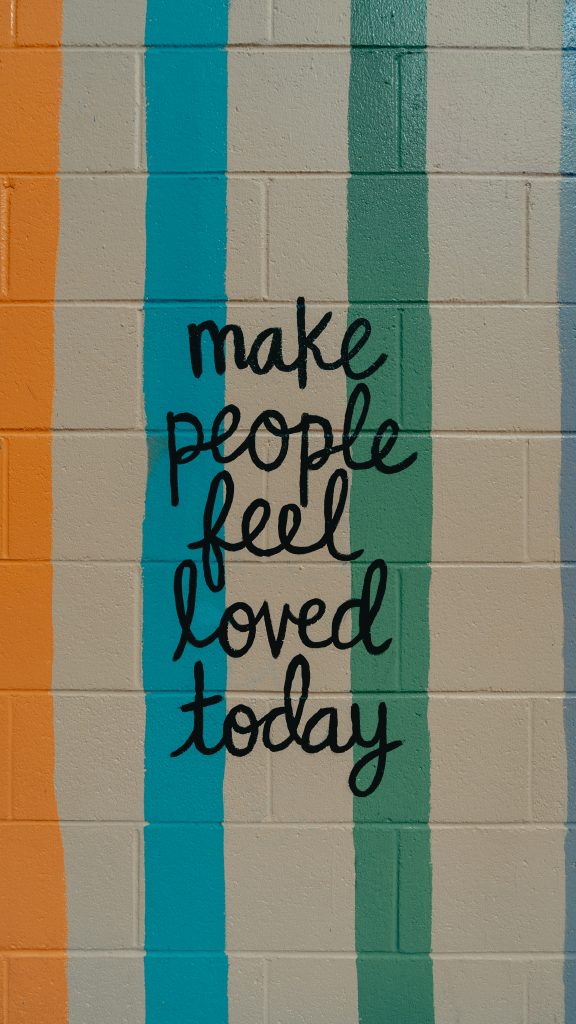
Finally, I want to tie this in to the current state of the nation. In these odd times, we can begin practicing empathy towards those we may not relate to well; the elderly. With COVID-19 spreading and people lining up around grocery stores to get toilet paper, it can be easy to laugh at some of what we perceive as overreactions, or even to become irritated with the inconvenience. For healthy college students and my immediate family, the risk of being harmed by the virus is probably quite low. My middle child has asthma, so we are taking extra cautions, but overall we aren’t too worried. But then I talk to my parents, and I can hear the fear in their voices. They are in their mid-70s with intermittent health issues and they have put themselves on quarantine, as have most of their friends. My parents are highly educated, logical people, and they are scared. And that makes sense. The risk may be rather low, but the cost is incredibly high. Let’s take some time to think about those around us (physically and virtually) that are elderly and/or with health conditions. If that were us, we would be scared too. Let’s put in that extra bit of effort to try to empathize with others and if we aren’t sure how we can ask.
What are your thoughts? Share them below!
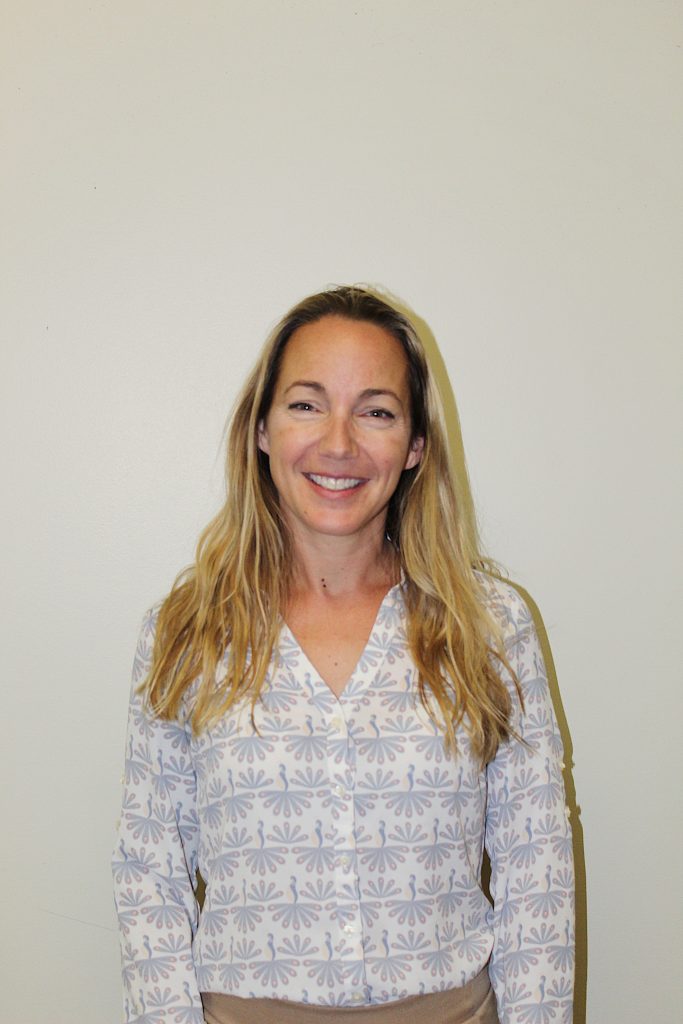
Dr. Mauldin graduated with her Ph.D. in psychology from Miami University and conducted research as a postdoctoral fellow at University of California, San Diego. She specializes in the cognitive neuroscience of learning and memory and sport, performance, and exercise psychology. She enjoys her role as a professor of psychology because it gives her the opportunity to study topics she loves while connecting with her students. Now, as the Director of the Sport and Performance Psychology program at California Baptist University, she has had the opportunity to build a graduate program that serves its students and the community. Dr. Mauldin’s own experience growing up with a physically debilitating disease has helped fuel her efforts to design programs that helps others increase their own physical and mental health through the use of techniques grounded in psychology.
References:
Alexander, D., Bloom, G. & Taylor, S. (2020). Female Paralympic athlete views of effective and ineffective coaching practices. Journal of Applied Sport Psychology, 32(1), 48-63.: Motivations, Barriers, and Facilitators.AdaptedPhysicalActivityQuarterly, 34(4), 421–441.
International Paralympic Committee. (2014). Official website of the Paralympic movement Retrieved from https://www.paralympic.org.
McLoughlin, G., Weisman Fecske, C., Castaneda, Y., Gwin, C., & Graber, K. (2017). Sport Participation for Elite Athletes With Physical Disabilities: Motivations, Barriers, and Facilitators. Adapted Physical Activity Quarterly, 34(4), 421–441.


